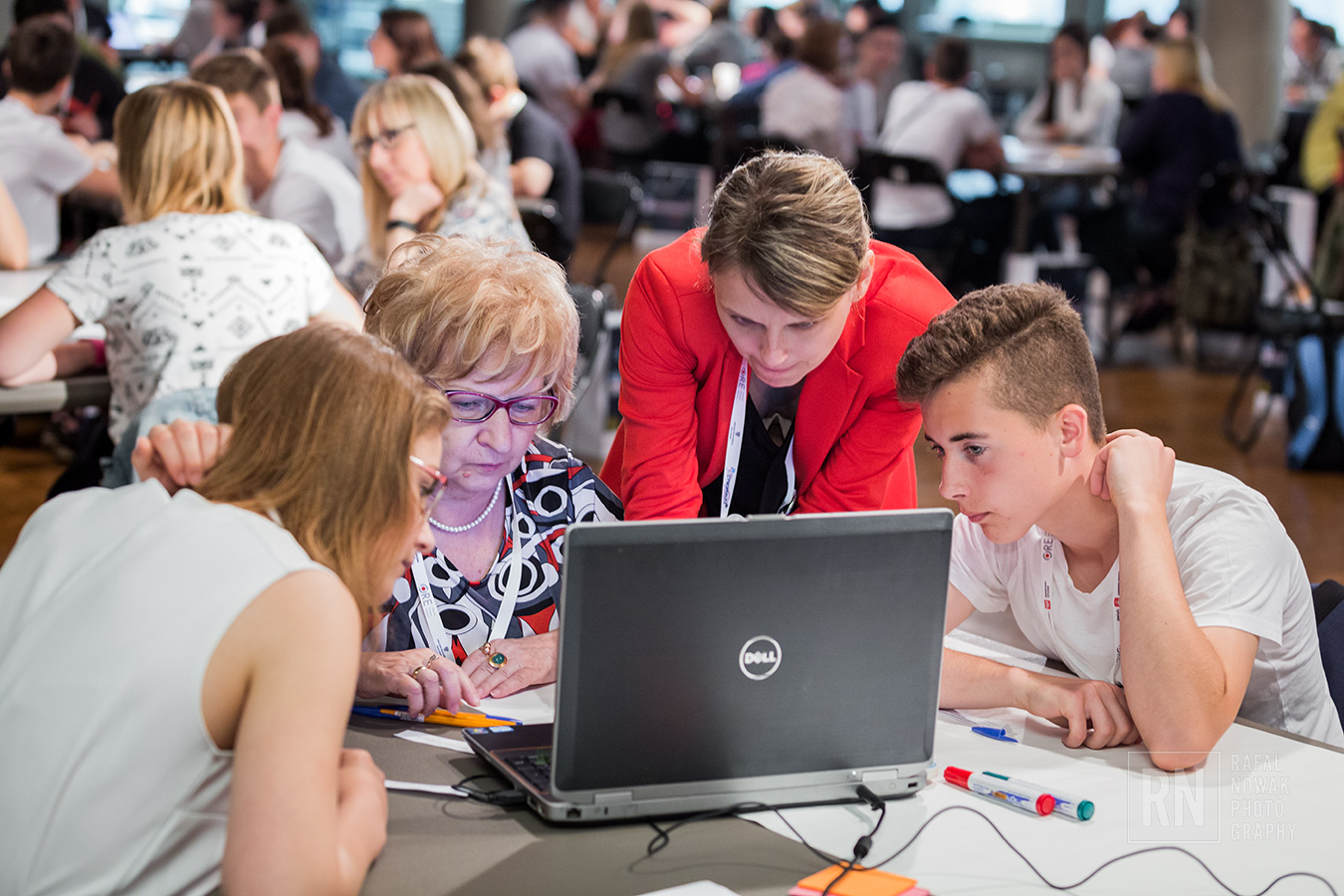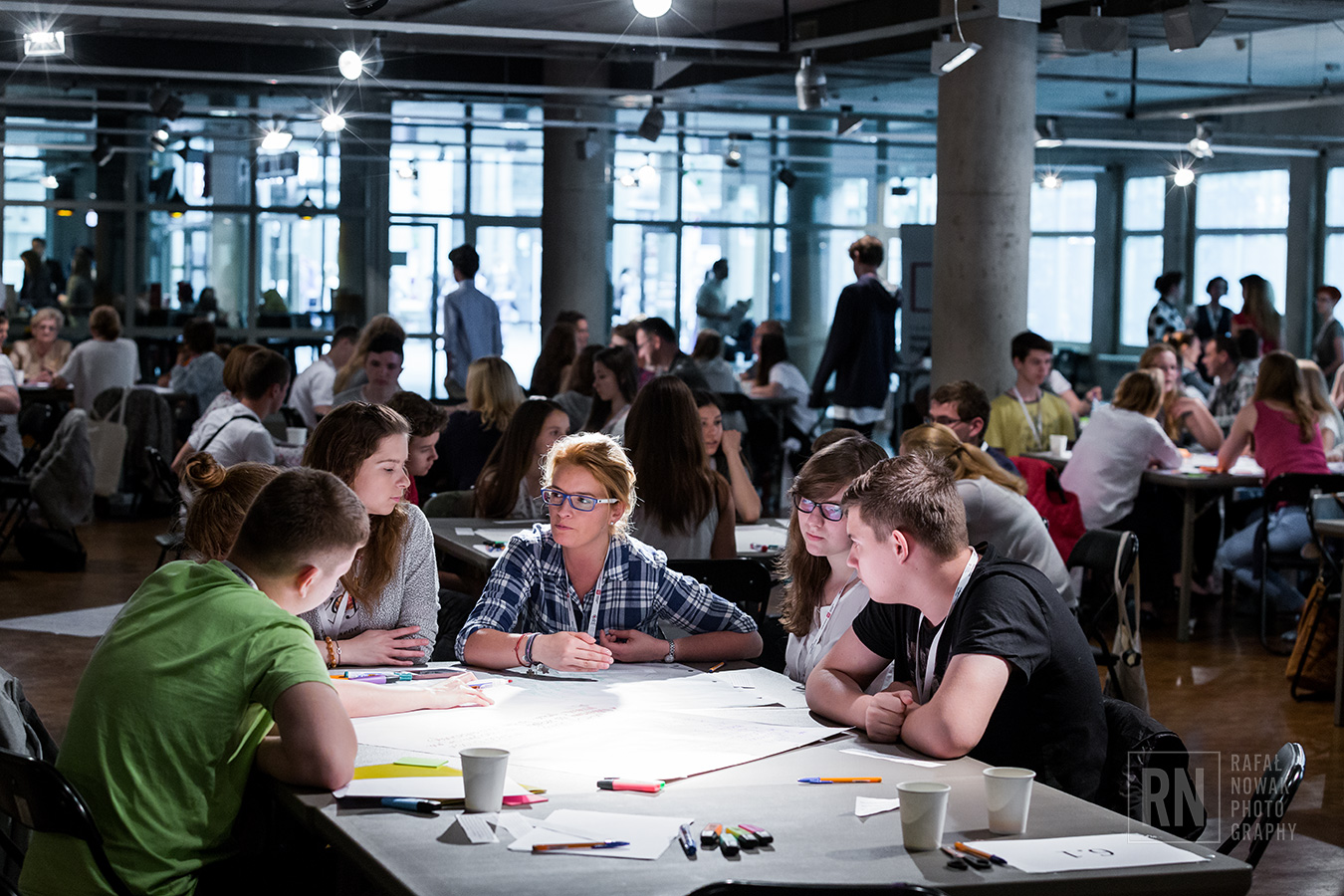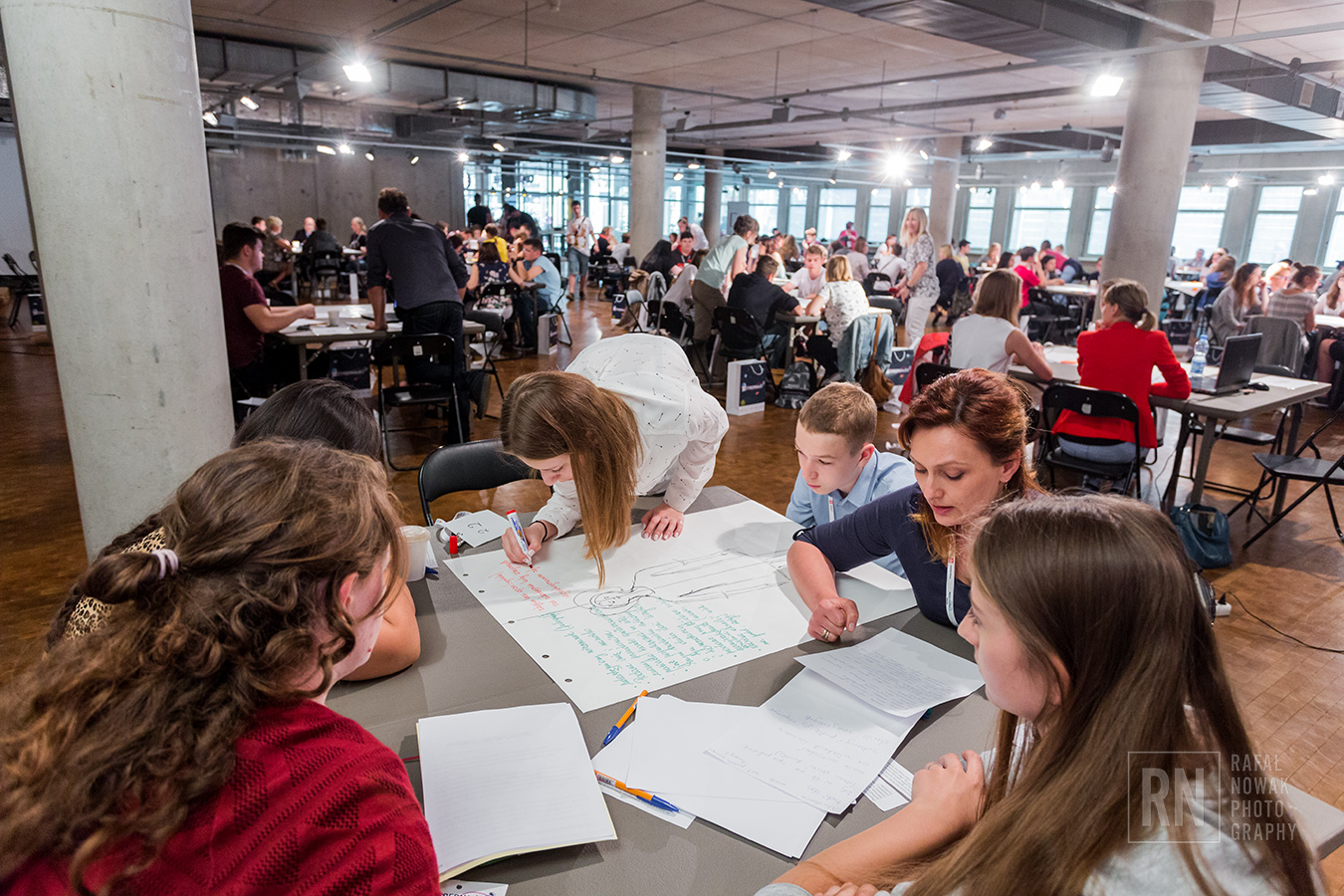Cybernauci at the start! - intergenerational workshops
Organising institution/partners:
Modern Poland Foundation (Fundacja Nowoczesna Polska)
Country:
Poland
Hashtags (key words):
#youth, #intergenerationality, #problem solving, #new technologies
Main topic/Theme:
Solving problems related to new technologies.
Media Literacy Competencies/Aims/Expected outcome (individual and social impact, challanges, risks):
The aim of the workshop is to trigger reflection on topics related to the new technologies. The possibility of exchange thoughts and reflections between younger and older participants helps to learn in partnership and to implement an idea of lifelong learning. Common solving problems is also the aim. During each workshop competences related to searching for information, use and present them are develop. Other competencies depend on described problem situation.
General Pedagogic Objectives:
- increasing interest in the use of media and digital competences in everyday life,
- strengthening the potential of participants in the use of new technologies.
Participants – age:
15-99 (the best effects we can achieve in multigenerational group)
Participants – number:
Depends on the number of problem situations which we want to solve: in one group should work 5-7 persons.
Participants – entry competencies/skills:
It is not necessary any kind of knowledge or competencies to take part in this workshop.
Methods/Type of activities:
Group work (each group is leaded by moderator).
Description – step by step:
Divide participants into groups of 5-7 persons. Give problem situation to each group, for example:

- You are the owner of the new social media portal for youth. You want to make your portal safe and comfortable as well give the certainty that the privacy of users are respected. Create regulations (terms and conditions) for the portal.
- Your grandmother is a student at the University of the Third Age. During the computer workshops she and her collegues learn how to use the Internet. They discover also the roles of the safty in the web .Your grandma ask you, as the experienced user, to share your experience and prepare the lesson about the safety for her collegues. Present the scenario of the lesson and list of safety rules in the internet. Take into consideration the age of the class participants.
- Imagine that all over Europe the internet has been disconnected. What could be the reason? What are the consequences? What can you do to prevent this? How this situation can affect global security? How will it affect your life? Present your vision of this situation.

The taks for the group is to find the information, discuss about the problem and possible solutios. During their work participants can use the internet as well ask moderator for help. For problem solving and preparing the presentation leave at least 2 hours.

After group work ask each group to present their results.
Resources:
Time/duration
4 h
Venue/place
it can be any place which allow participants listen to each other and discuss in comfortable way
Equipment
smartphone/tablet/laptop with acess to the internet
Materials
flip chart paper, markers, color paper, other workshop materials (newspapers, post-its, adhesive tape, etc)
Human resources
it is good to provide moderator to each group
Evaluation:
Participants like to work in small groups - it gives a possibility to take part into discussion and problem solution. They appreciate also the work in multigenerational groups (for most of them it is the first possibility to talk about new technologies with persons from the another age group).
Hints for the facilitator:
You can create the problem situations to solve for groups. You can also ask each of group to solve the same problem and comparise the results.
Contact:
Fundacja Nowoczesna Polska/Modern Poland Foundation
Media Literacy Programme edukacjamedialna@nowoczesnapolska.org.pl
The publication was created as part of the project EMELS.
Fot. Rafał Nowak
This publication reflects the views only of the author, and the Commission cannot be held responsible for any use which may be made of the information contained therein.

